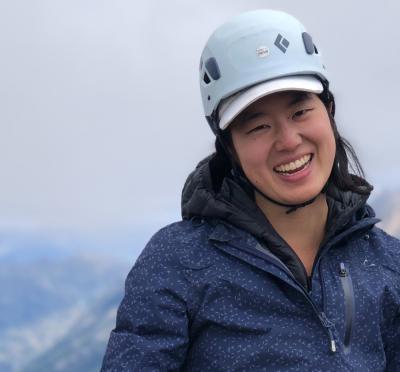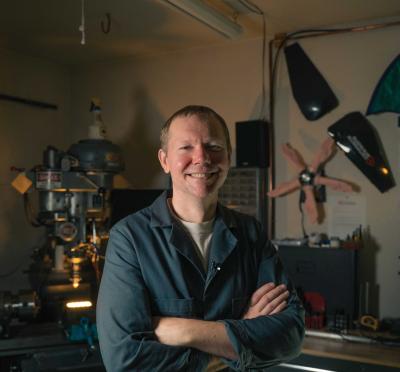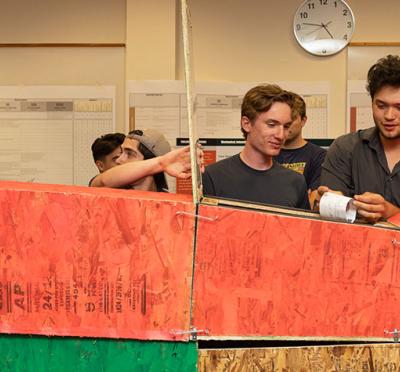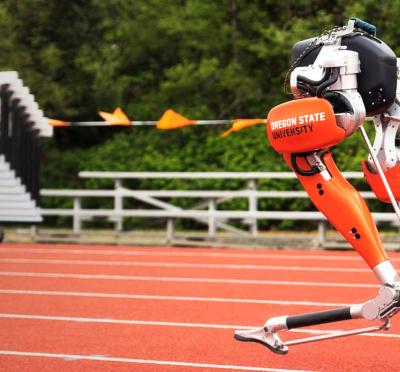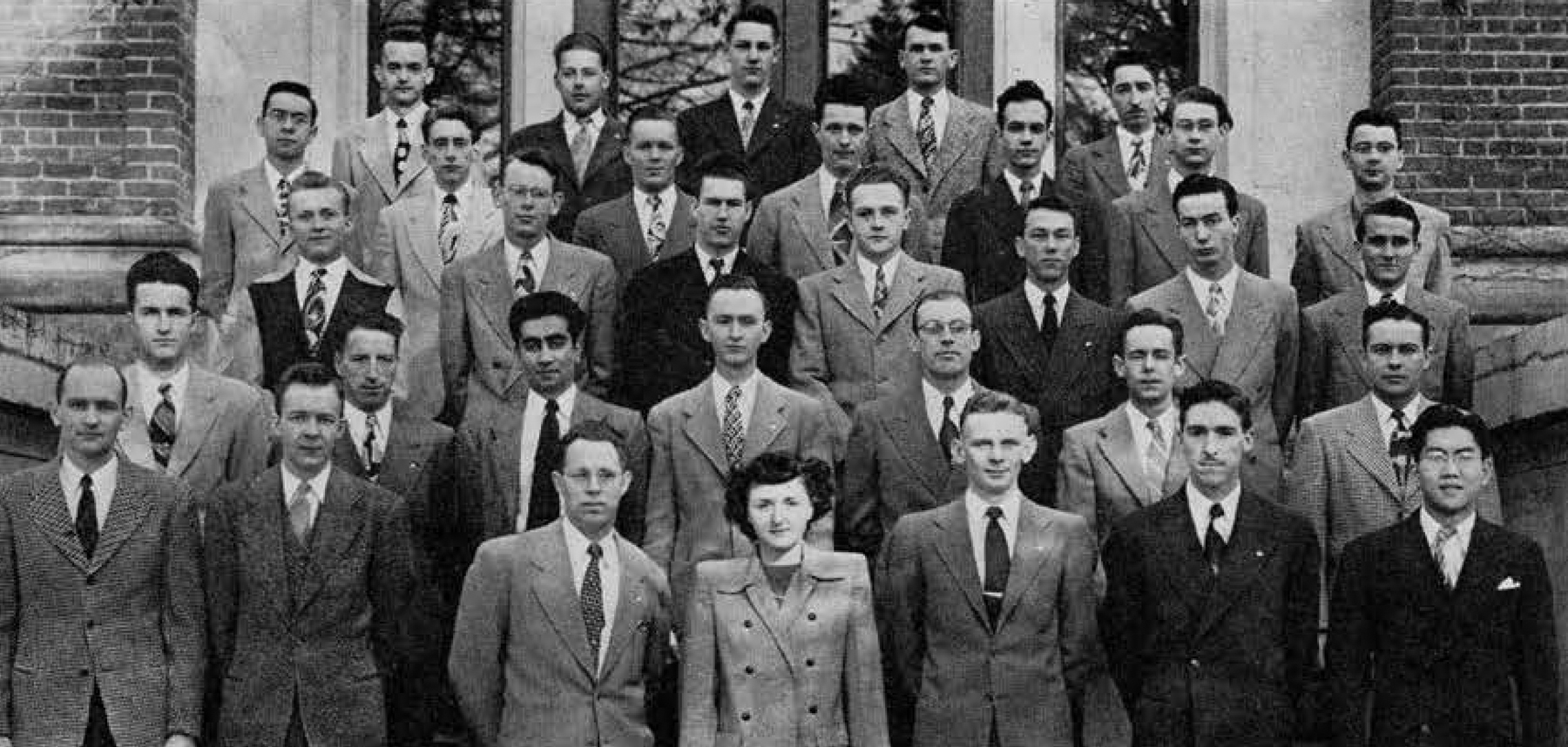
Growing up, Elaine Gething Davis, ’49, would hear an airplane soaring above her family’s coastal Oregon farm and rush outside with everyone else to watch it. Later, living near a military base during World War II, she was amazed by the variety of airborne machines leaping into the sky. After the war, her father bought a surplus airplane and gave the whole family flying lessons. Thus began a lifelong fascination with things that fly.
When she arrived at Oregon State College in 1945, she was the sole woman in her mechanical engineering class.
“I can recall the day as a freshman that I went to orientation. I could hear the rumble-rumble-rumble of a lot of people talking all the way down the hall, coming from a big auditorium,” she said in a 2017 interview for Boeing’s oral history archive. “When I stepped up to the door, all of a sudden, everybody quit talking.”
She was one of six women among the undergraduate engineering students on campus. Before them, only three female students had ventured into engineering at Oregon State.

Oregon State test laboratory.
Her male classmates taunted her that she was “just here to get married.” She told an Oregon State Technical Record reporter that she was in engineering for a career and was not considering marriage.
“I simply would not give up, as hard as it was,” she said in the oral history. “I figured, my parents are sacrificing to send me to school. I couldn’t disappoint them.”
Many older students — men returning to Oregon State after the war — were supportive and kind. She had the support of her professors as well, especially Ben Ruffner, an aeronautical pioneer who served as a mentor to her in college and would later prove vital in her career. Eventually, even the scoffers came to treat her with respect. By her junior year, she’d zeroed in on the aeronautical option within her mechanical engineering major and was thriving in her classes.
She graduated with top honors, was quickly hired by Boeing, and moved to Seattle, renting a room at a residential hotel for women. She couldn’t wait to put her engineering training to use. But Boeing had relegated her to a clerk position. She spent her days entering data alongside other women. It was tedious, but she kept her head down and gave it her all.
One day, about a year after she’d been hired, Ruffner visited the offices to do some consulting for Boeing. After saying hello to Davis at her clerk’s desk, he marched straight to the head of the company’s human resources department. He told them he wouldn’t work with Boeing unless the company put Davis in a position worthy of her skills.
Almost immediately, Davis was reclassified as an aerodynamicist and became one of the first female space engineers at Boeing. She helped design a new wind tunnel, mapped out launches and worked on putting machines into orbit.
After hours, Davis loved to cut loose. Every Wednesday, Friday, and Saturday, she’d go with her roommate to dance the night away across Seattle. That’s how she met her husband, Phil.
“He was an electronic engineer, and we had a lot of the same interests,” she said.
She wasn’t allowed to talk about her work, even with her husband. The Cold War was ramping up, and she was doing classified work in partnership with the military. She started working on SRAMs, short range attack missiles, that could deliver nuclear warheads using a computer program to simulate their launch.
“It was scary,” she said. “I had quite a few nights of nightmares. I personally don’t believe war solves anything, but unfortunately in this world, you have to make sure you’ve got your defenses, because otherwise you’re vulnerable.”
After retiring in 1992, Davis sailed the San Juan Islands with Phil and kept dancing into her 80s. She died in 2018 at age 90.
Having grown up poor, she understood the importance of scholarships, and planned her legacy accordingly. She created a scholarship at Oregon State to support those in need, “of all races, genders and anything else,” including students of all majors. The first Elaine Gething Davis Scholarship was awarded in 2020.
